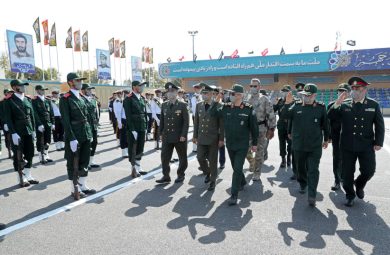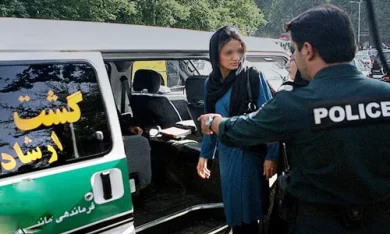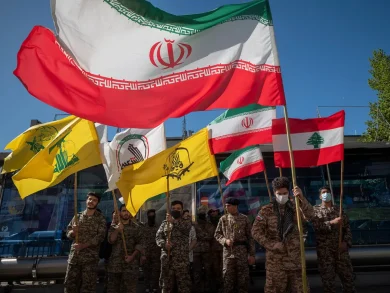The Islamic Revolutionary Guard Corps (IRGC) has long been associated with its military, economic, and political dominance in Iran. However, in recent years, it has emerged as a formidable player in the realm of cyber warfare, leveraging its capabilities to achieve strategic objectives both domestically and internationally. Through its cyber units and affiliated groups, the IRGC has engaged in espionage, sabotage, and disinformation campaigns that undermine regional and global stability. This analysis examines the IRGC’s role in cyber warfare, its strategies, tools, and targets, and the broader implications of its actions on international security.
The Rise of IRGC Cyber Capabilities
The IRGC began investing in cyber warfare in the early 2000s, recognizing the potential of cyberspace as a domain for asymmetric warfare. Given Iran’s technological and military disadvantages compared to its adversaries, the IRGC has turned to cyber operations as a cost-effective means to project power, disrupt enemies, and control dissent at home.
1. Strategic Goals of IRGC Cyber Warfare
• Asymmetric Warfare: Use cyber operations to counter the military and economic advantages of adversaries like the United States, Israel, and Saudi Arabia.
• Regional Influence: Target regional rivals to destabilize their infrastructure and enhance Iran’s geopolitical position.
• Regime Protection: Suppress domestic dissent and maintain control over information within Iran by monitoring and censoring online activity.
• Economic Survival: Conduct cyberattacks to bypass sanctions, steal intellectual property, and disrupt the economies of adversarial states.
2. Organizational Structure
The IRGC’s cyber warfare efforts are primarily conducted by:
• The Cyber Defense Command: Focused on protecting Iran’s digital infrastructure.
• The Basij Cyber Units: Paramilitary volunteers trained to monitor and suppress online dissent domestically.
• Affiliated Hacker Groups: Semi-independent groups like APT33, APT34, and Charming Kitten, which carry out cyberattacks under IRGC direction.
Key Cyber Strategies and Tactics
The IRGC employs a variety of strategies to achieve its objectives, often blending cyberattacks with disinformation and traditional military tactics.
1. Espionage
The IRGC conducts widespread cyber-espionage campaigns targeting government institutions, businesses, and individuals. These operations often focus on:
• Stealing Sensitive Information: Defense secrets, intellectual property, and financial data.
• Monitoring Adversaries: Espionage against political and military organizations in the U.S., Israel, and the Gulf states.
2. Sabotage
The IRGC uses cyberattacks to disrupt critical infrastructure in adversarial states, demonstrating Iran’s capability to inflict damage without direct military engagement. Notable examples include:
• Saudi Aramco Attack (2012): A suspected IRGC-linked group deployed the Shamoon malware, wiping data from 30,000 computers and disrupting operations.
• Attacks on Energy Infrastructure: Ongoing campaigns targeting power grids, oil facilities, and water systems in Gulf states and beyond.
3. Disinformation and Psychological Operations
Through fake social media accounts, manipulated narratives, and fake news sites, the IRGC spreads disinformation to:
• Sow Division: Exploit societal and political divisions in adversarial countries.
• Influence Elections: Attempt to sway public opinion and undermine trust in democratic institutions.
• Enhance Regime Legitimacy: Portray the Iranian government as a victim of foreign aggression and a defender of Islamic values.
4. Economic Cybercrime
Sanctions and economic isolation have led the IRGC to engage in:
• Cryptocurrency Mining and Theft: Generating revenue through illicit mining operations and hacking cryptocurrency exchanges.
• Financial Fraud: Targeting global financial institutions for theft and disruption.
Domestic Cyber Suppression
The IRGC also uses cyber warfare domestically to maintain control over Iranian society and suppress dissent.
1. Internet Censorship
The IRGC plays a central role in enforcing Iran’s restrictive internet policies, including:
• Filtering and Blocking: Censoring social media platforms, news outlets, and opposition websites.
• Internet Blackouts: Cutting off internet access during protests, such as during the 2019 demonstrations, to disrupt communication and conceal crackdowns.
2. Surveillance
The IRGC monitors online activities to identify and target activists, journalists, and dissidents. Through surveillance technologies, it tracks communications, infiltrates social media accounts, and conducts phishing campaigns.
3. Cyber Arrests and Harassment
Activists and bloggers are frequently arrested based on evidence gathered through IRGC cyber surveillance. Many face severe penalties, including imprisonment and torture.
Major IRGC Cyber Operations
Several high-profile cyberattacks attributed to the IRGC or its affiliates highlight its growing capabilities and ambitions:
1. Operation Cleaver (2014)
This campaign targeted critical infrastructure across 16 countries, including the U.S., Israel, and Saudi Arabia, focusing on energy, transportation, and telecommunications sectors.
2. U.S. Financial Sector Attacks (2011-2013)
IRGC-linked hackers conducted distributed denial-of-service (DDoS) attacks on American banks, disrupting operations and costing millions in damages.
3. Cyberattack on Israel’s Water Infrastructure (2020)
An attempted cyberattack targeted Israeli water systems, potentially endangering public safety. While thwarted, it signaled the IRGC’s willingness to escalate cyber conflict.
Global Implications of IRGC Cyber Warfare
The IRGC’s cyber activities pose a significant threat to global stability, affecting not only Iran’s adversaries but also the broader international community.
1. Escalation of Cyber Conflicts
The IRGC’s attacks increase the risk of retaliation and escalation, potentially leading to broader conflicts involving cyber and conventional warfare.
2. Threat to Critical Infrastructure
By targeting critical sectors like energy, finance, and water, the IRGC endangers civilian populations and disrupts global supply chains.
3. Undermining Trust in Digital Systems
The IRGC’s disinformation campaigns and hacking operations erode trust in digital platforms, democratic institutions, and international systems.
4. Encouraging Other Actors
The IRGC’s success in cyber warfare may inspire other state and non-state actors to adopt similar tactics, further destabilizing the cyber domain.
Countering the IRGC’s Cyber Threat
Addressing the IRGC’s cyber capabilities requires a coordinated international response that combines defensive measures, sanctions, and diplomatic efforts.
1. Strengthening Cyber Defenses
• Collaborative Efforts: Countries must share intelligence and coordinate responses to IRGC cyber threats.
• Resilient Infrastructure: Critical infrastructure must be hardened against cyberattacks through advanced security measures and redundancies.
2. Targeted Sanctions
Sanctions on IRGC-affiliated individuals, companies, and financial networks can limit their resources and disrupt operations.
3. Disinformation Countermeasures
Governments and tech companies must work together to combat IRGC-led disinformation campaigns, promoting digital literacy and fact-checking initiatives.
4. Supporting Civil Society in Iran
Providing tools and resources to Iranian activists can help them bypass censorship and counter the IRGC’s domestic repression.
Conclusion
The IRGC’s growing cyber capabilities represent a significant challenge to global stability. Through espionage, sabotage, and disinformation, the IRGC disrupts critical infrastructure, undermines democracies, and perpetuates regional instability. Countering this threat requires sustained international cooperation, robust cyber defenses, and targeted efforts to weaken the IRGC’s resources and influence. Only through a comprehensive approach can the global community mitigate the IRGC’s impact and secure a safer cyber landscape.
Join Our Newsletter!
Stay informed with the latest updates, news, and ways to take action in the fight for justice and global security. Sign up now to get updates delivered straight to your inbox!





